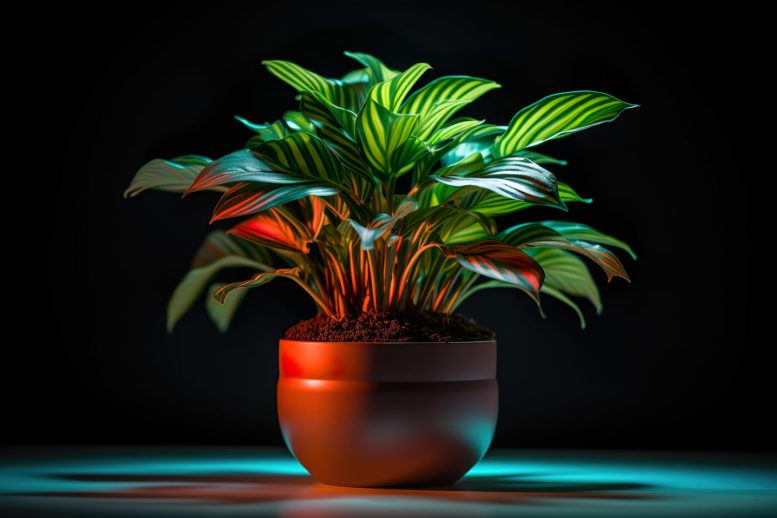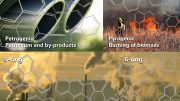
Research led by UTS and plantscaping solutions company Ambius reveals that indoor plants can efficiently remove 97% of toxic gasoline fumes, including cancer-causing compounds like benzene, from indoor air within eight hours. Poor indoor air quality, often worse than outdoor air and a significant health hazard, can be improved sustainably using plants, with a positive impact on health, well-being, and productivity.
A new study reveals that plants can efficiently remove toxic gasoline fumes from indoor air.
A groundbreaking study has uncovered that plants possess the ability to efficiently remove toxic gasoline fumes, including carcinogenic substances like benzene, from indoor air.
The research was spearheaded by Associate Professor Fraser Torpy, a bioremediation expert from the University of Technology Sydney (UTS), in collaboration with a leading Australian plantscaping solutions company Ambius.
The researchers found that the Ambius small green wall, containing a mix of indoor plants, was highly effective at removing harmful, cancer-causing pollutants, with 97 percent of the most toxic compounds removed from the surrounding air in just eight hours.
Poor indoor air quality is responsible for 6.7 million premature deaths globally, according to the World Health Organisation. Most people spend 90% of their time indoors at home, school, or the workplace, so adopting new strategies to improve air quality is critical.
Ambius General Manager Johan Hodgson said the research presented new evidence of the critical role played by indoor plants and green walls in cleaning the air we breathe quickly and sustainably.
“We know that indoor air quality is often significantly more polluted than outdoor air, which in turn impacts mental and physical health. But the great news is this study has shown that something as simple as having plants indoors can make a huge difference,” Mr Hodgson said.
Previous studies on indoor plants have shown they can remove a broad range of indoor air contaminants, however, this is the first study into the ability of plants to clean up gasoline vapors, which are one of the largest sources of toxic compounds in buildings worldwide.
Offices and residential apartment buildings often connect directly to parking garages, either by doors or elevator shafts, making it difficult to avoid harmful gasoline-related compounds seeping into work and residential areas. Many buildings are also exposed to gasoline fumes from nearby roads and highways.
Breathing gasoline fumes can lead to lung irritation, headaches, and nausea, and has been linked to an increased risk of cancer, asthma, and other chronic diseases from longer-term exposure, contributing to decreased life expectancy.
Associate Professor Torpy said the study results, based on measurements from a sealed chamber, had far exceeded their expectations when it came to removing gasoline pollutants from the air.
“This is the first time plants have been tested for their ability to remove gasoline-related compounds, and the results are astounding.
“Not only can plants remove the majority of pollutants from the air in a matter of hours, but they also remove the most harmful gasoline-related pollutants from the air most efficiently, for example, known carcinogen benzene is digested at a faster rate than less harmful substances, like alcohols.
“We also found that the more concentrated the toxins in the air, the faster and more effective the plants became at removing the toxins, showing that plants adapt to the conditions they’re growing in,” Associate Professor Torpy said.
Mr. Hodgson said the findings confirmed feedback they’d received after installing plants in hundreds of office buildings across the nation.
“At Ambius, we see over and over again the effects plants have in improving health, wellbeing, productivity, and office attendance for the thousands of businesses we work with. This new research proves that plants should not just be seen as ‘nice to have’, but rather a crucial part of every workplace wellness plan.
“The bottom line is that the best, most cost-effective, and most sustainable way to combat harmful indoor air contaminants in your workplace and home is to introduce plants,” Mr. Hodgson said.
The research was funded by Ambius.









I interested to this good knowledge love it thanks